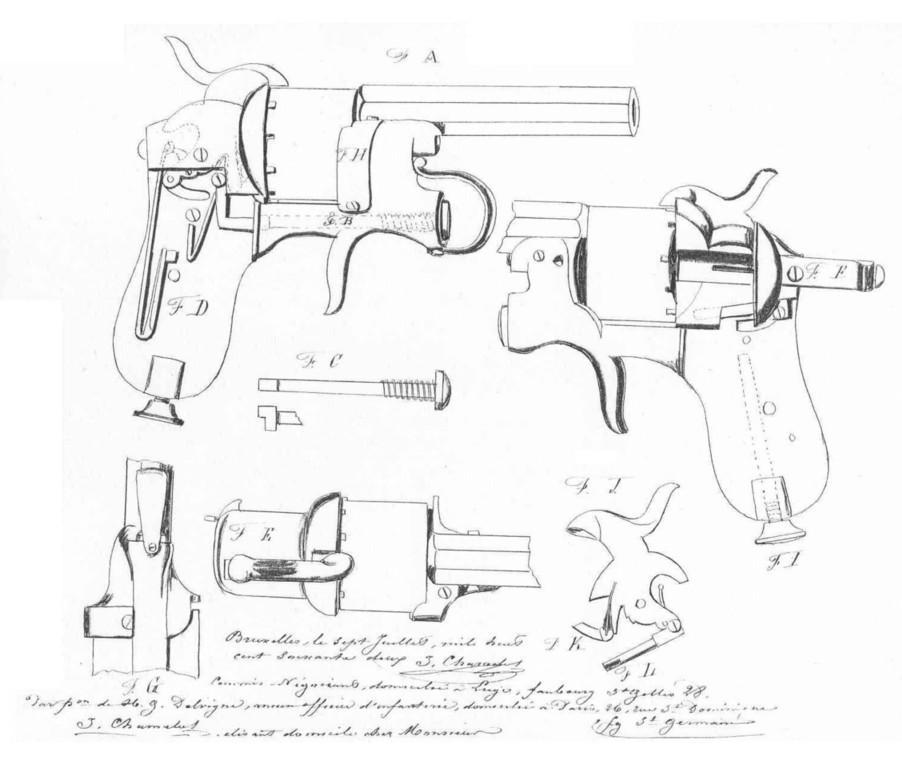
CHAMELOT & DELVIGNE REVOLVER
July 7, 1862 the Belgian provincial government of the province of the Brabant recorded a protocol with the files of MISTERS J Chamelot and H. J Delvigne, applicants of a patent for the invention of a revolver and resident with St. Gilles close to Brussels. Obtaining the patent is granted without examination and to the proper risks and dangers of the informants, without guarantee for the innovation and the value of the invention or the precision of the description and without fixing of a legal situation.
Brussels; July 15, 1862
The Minister of Interior Department
The first patent of a revolver Chamelot and Delvigne is allotted. The drawings deposited with the office of the patents were signed: J Chamelot, craftsman, resident in Liege and Henry Gustave Delvigne, officer of infantry, residing Paris. J Chamelot currently residing at Mr Fusnot at St. Gilles close to Brussels. The first revolver Chamelot and Delvigne, one six blows, were of construction and rather strange form. It was a weapon of pocket, for cartridge 7,5 mm Lefaucheux. The carcass and the barrel were composed of bronze and steel.
Henri Gustave DELVIGNE
Son of Charles Constantin Emmanuel DELVIGNE and Therese MERLIN, Henri Gustave DELVIGNE was born in Hamburg, Germanic Confédération on April 10, 1800 (Encyclopedia britannica indicates 1799 per error). It will die in Toulon, France, October 18, 1876. He was the husband in first weddings of Anne (or Aime) Héraïde HEBERT. With its death he is known as widower in second wedding of Antoinette LAPORTE.
Chevalier of the Legion of Honor on December 27, 1830. He is a known as lieutenant of infantry of the ex-guard at the time of his death.
At the end of December 1932, at the beginning of 1933, it ordering George Lacassie, director of the Review of infantry, sought information on this officer for the General Challeat who wished to carry out a study on he. I do not know if this study has one day published.
H.G. Delvigne is named by decree of November 30, 1866 officer of the imperial order of the Legion of honor. It is then described as inventor of the arrows carries mooring ropes of rescue, author of many improvements brought in the weapons of precise details.
It would seem that its death certificate comprises an error on the name of his second wife. In fact, the latter should according to any probability name LAPOSTOL.
Jean Charles
From their association a long list of patents was going to follow.
Here are some.
Since Chamelot & Delvigne did not number different the evolution from the revolvers which they created, we will speak about “Variation” and not about “Model”. Two exceptions however, models 8 and 9 are both known under these terms, we will thus call them also “model 8” and “Model 9”
Alain
1st variation - July 1862 - patent 12861
The mechanism that they used is a construction existing already and patented in 1858 by the manufacturer J. Chaineux
Une firme française fabrique le nécessaire pour recharger ce type de munition
Regardez ici : H & C Collection

2nd variation - September/October 1862 - patent 13241
In September/October of the same year, Chamelot and Delvigne patented a patent for an improvement of original construction. A small revolver of pocket in two different versions.
Always with the same mechanism of J. Chaineux.
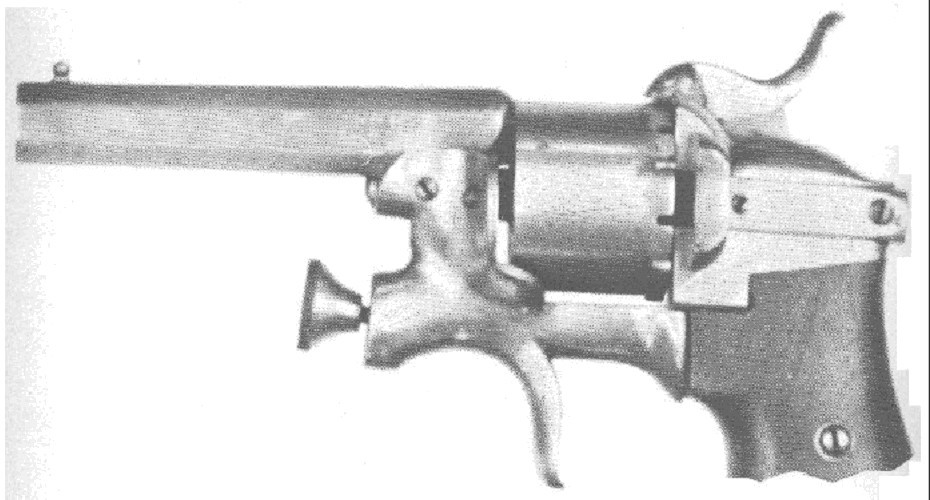
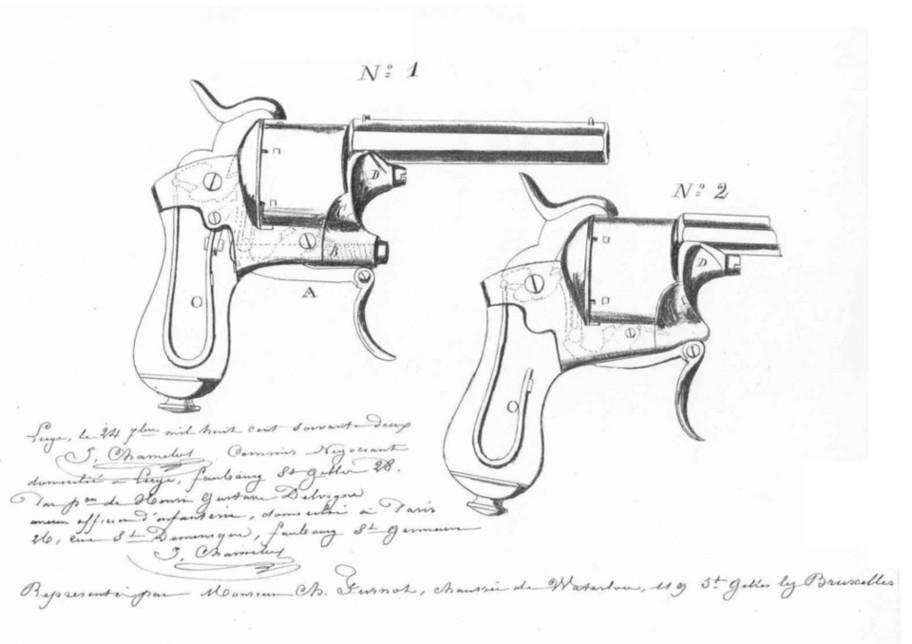
3rd variation - December 1862 - patent 13258
In December 1862, Chamelot and Delvigne made still patent a variation of the first model.
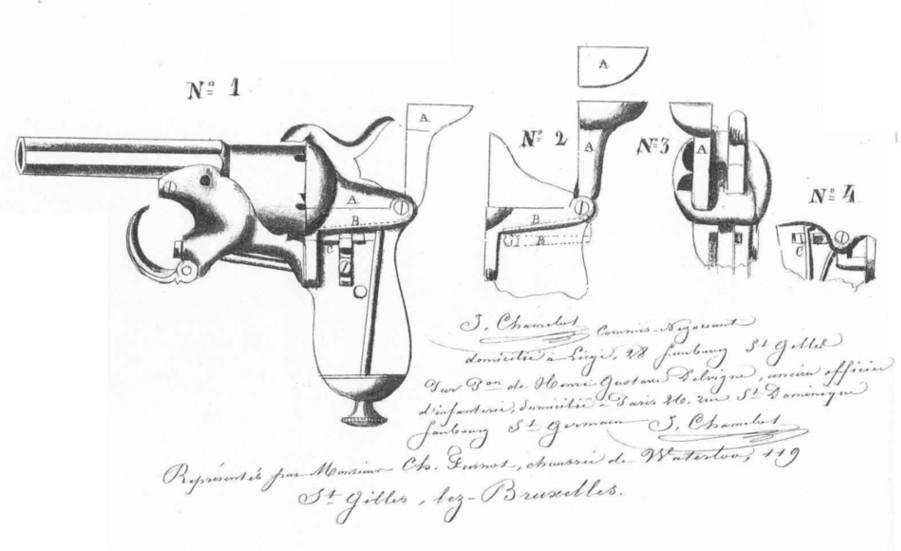
Chamelot Delvigne 4th variation
By Lockhoven
5th variation - 30Mars 1863 - Patent 14147
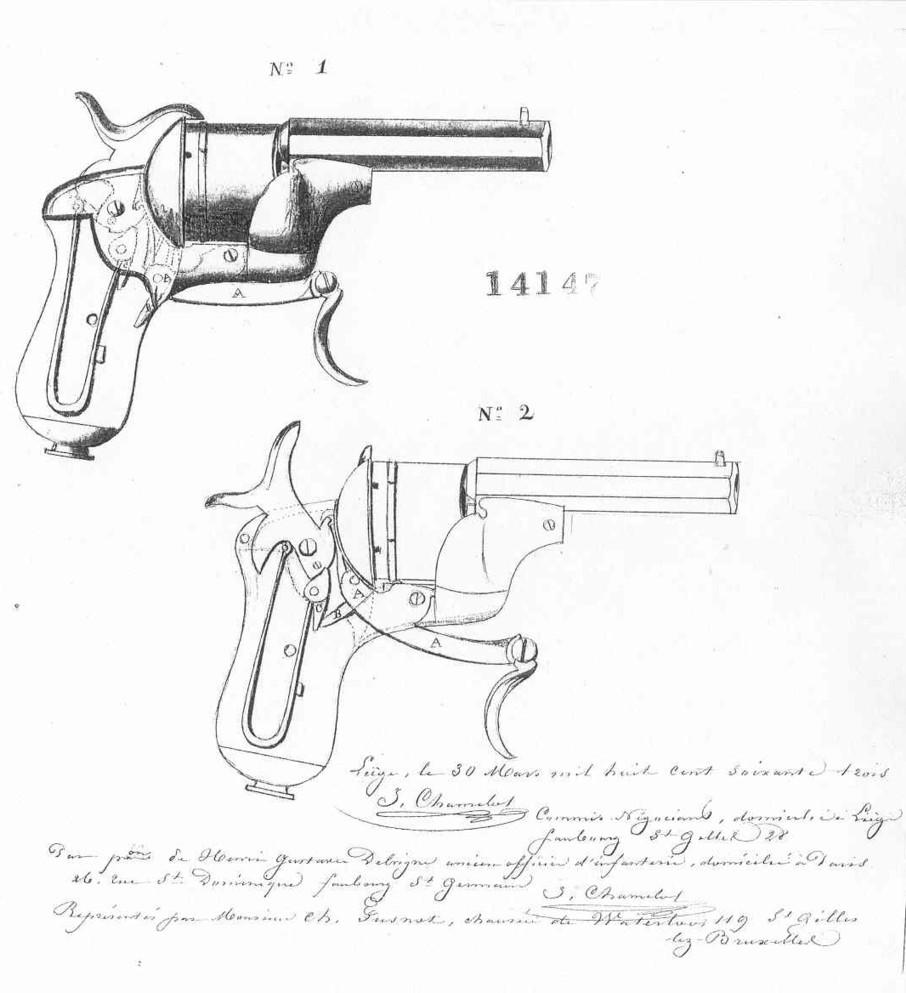
6th variation
By Lockhoven
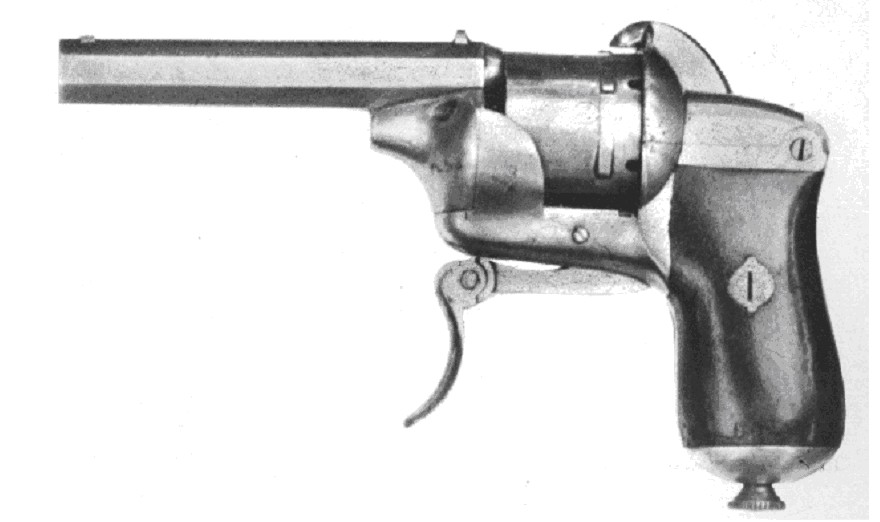
7th variation - September 5, 1863 - Patent 14955
In September 1863, another additional patent was delivered. It related to this time the ejector. This revolver was a double action. The drawings of the patent show the left side and the ejector.
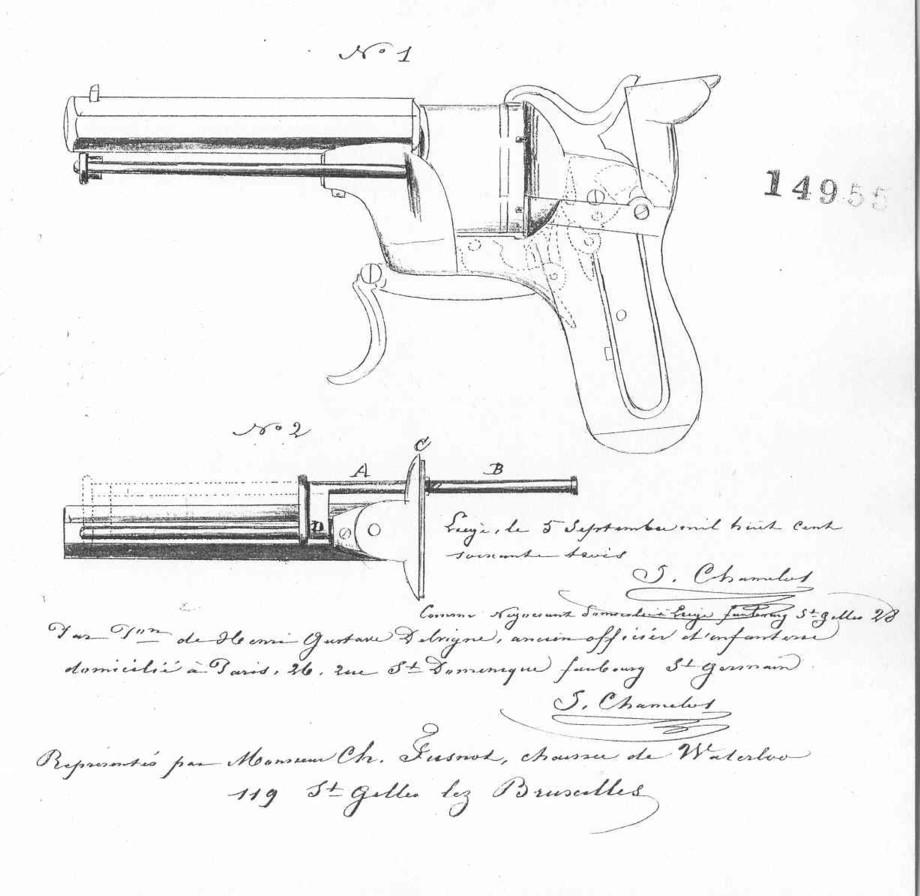
MODEL 8 - May 5, 1864 - Patent 16152
The following improvement is the famous variation known under the name MODEL 8 was deposited at the patent-office on May 5, 1864. Model 8 is definitely larger than its predecessors. The cam of blocking of the cylinder functions like a swing; it is worked at an end of a claw which takes in the barrel and other side it is taken in a notch in the foot of the hammer.
In this manner the cylinder is blocked firmly while the hammer falls down.
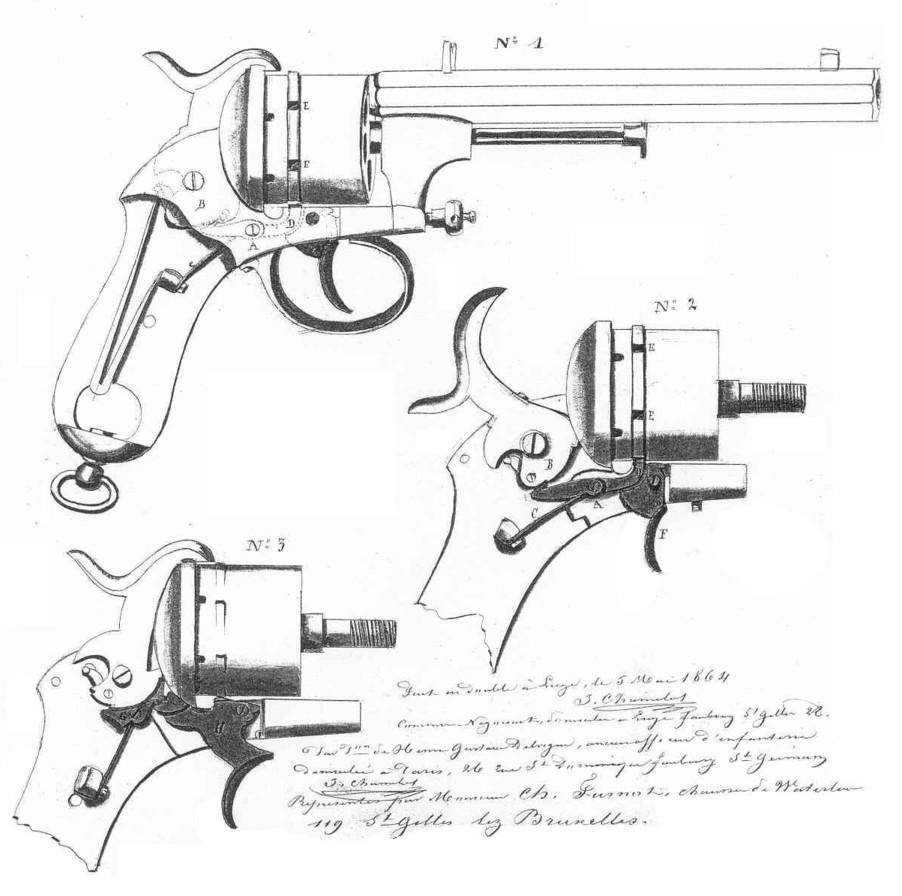
Chamelot Delvigne Mod. 8
Many thanks to Jean Pol B. for these nice pictures
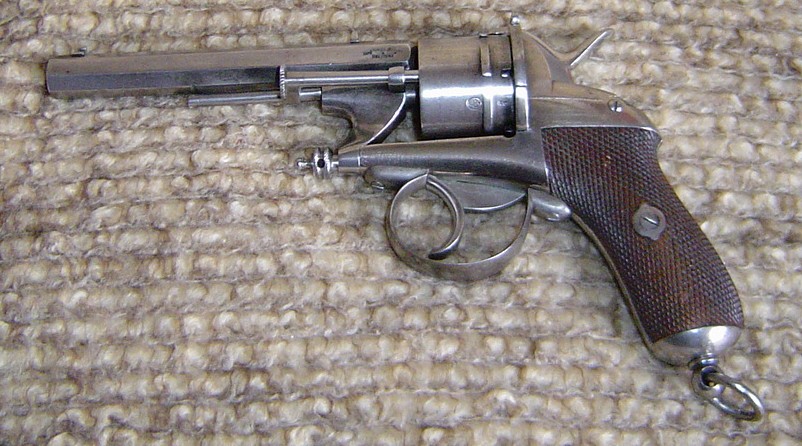
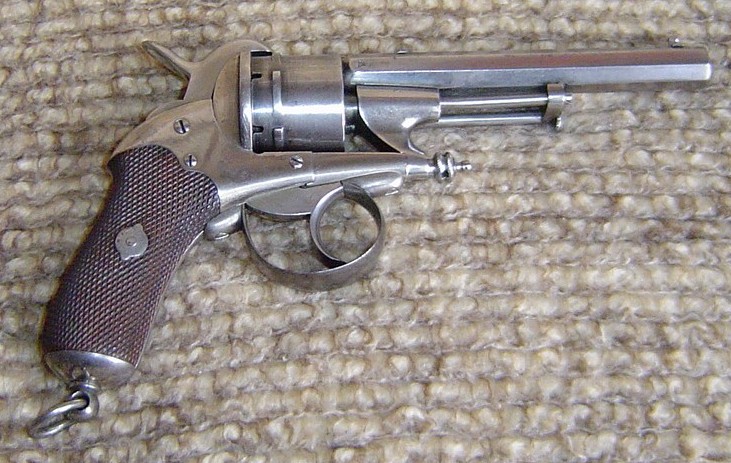
Another model 8
Engraved!
Photos Littlegun
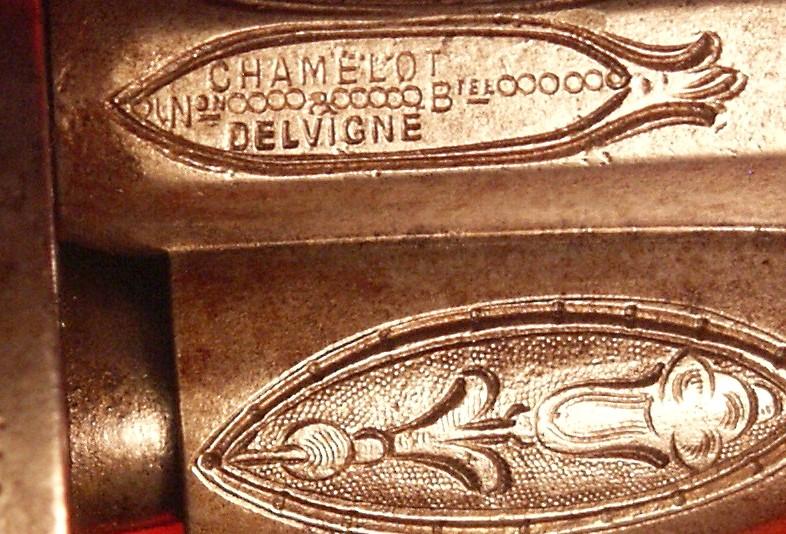
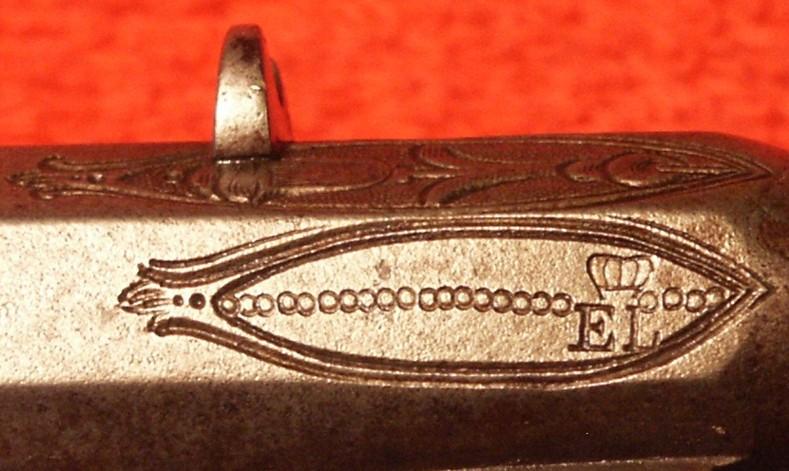
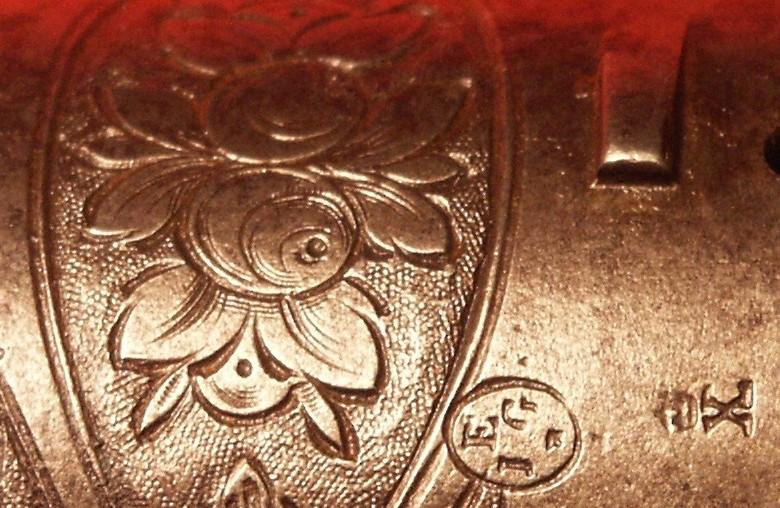
MODEL 9 - December 14, 1865 - Patent 18901
Model 9 is a double action based on the framework of model 8.
The great difference consists of a shield around the back of the barrel protecting the pins from the ammunition
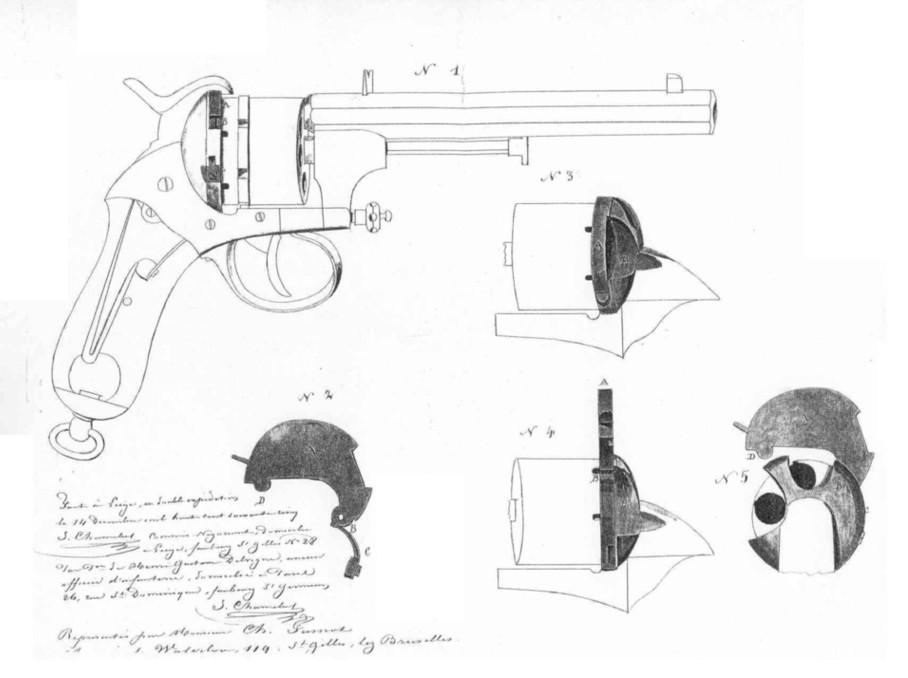
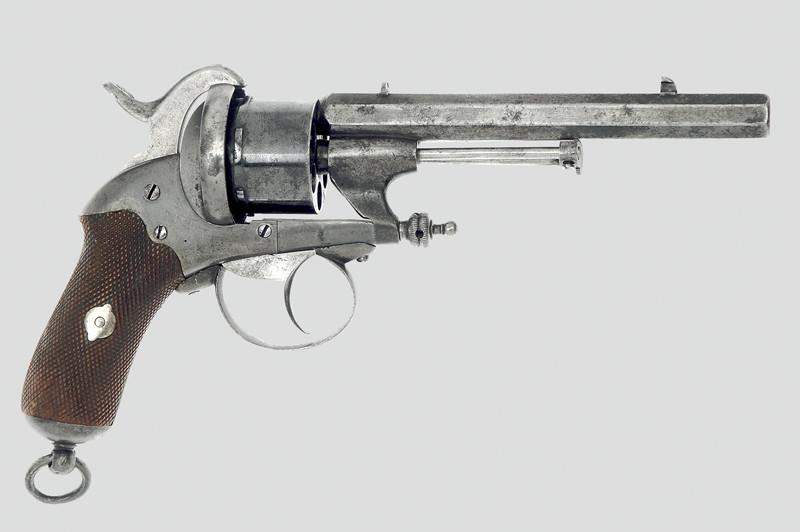
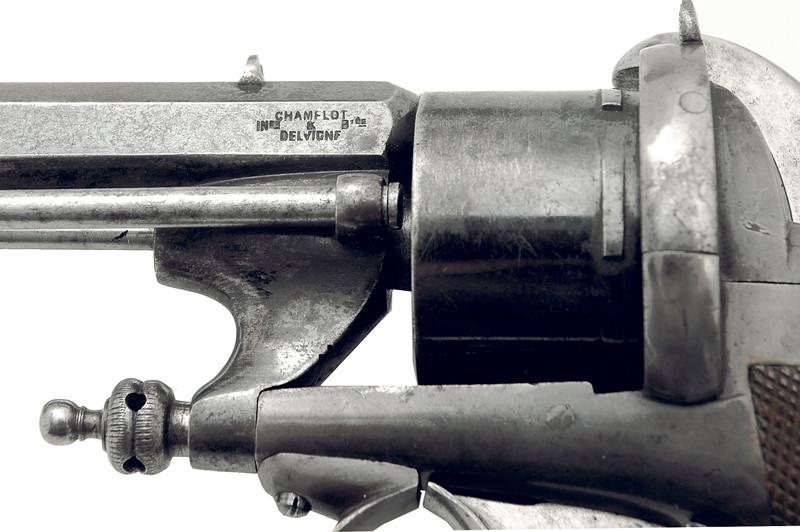
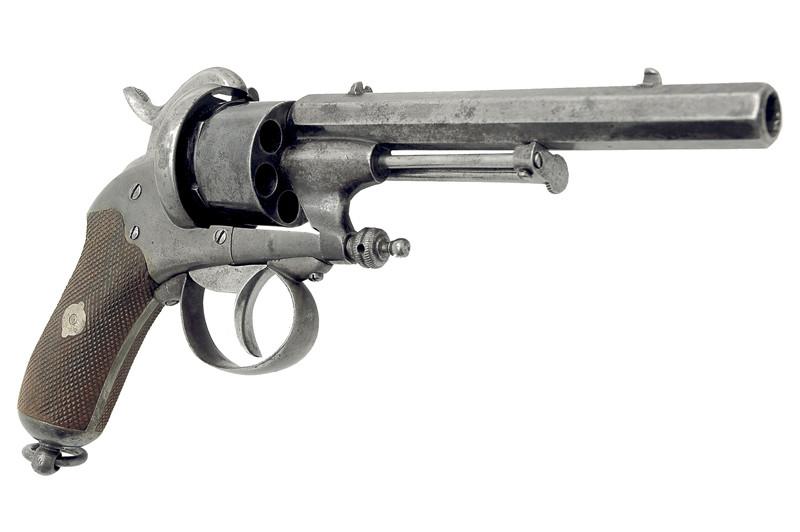
August 31, 1869 - Patent 26250
First outline of the future model 1873
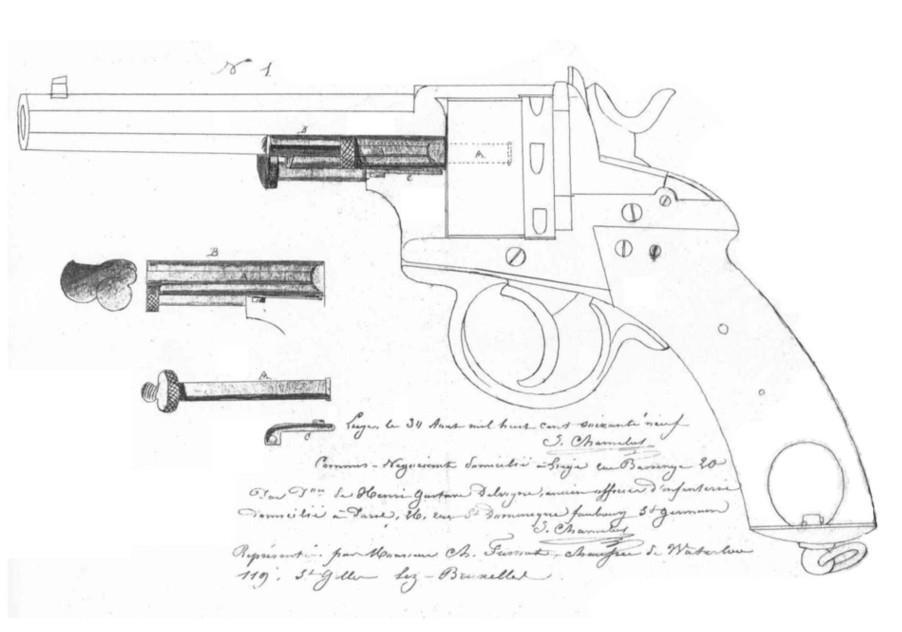
May 22, 1871 - Patent 28821
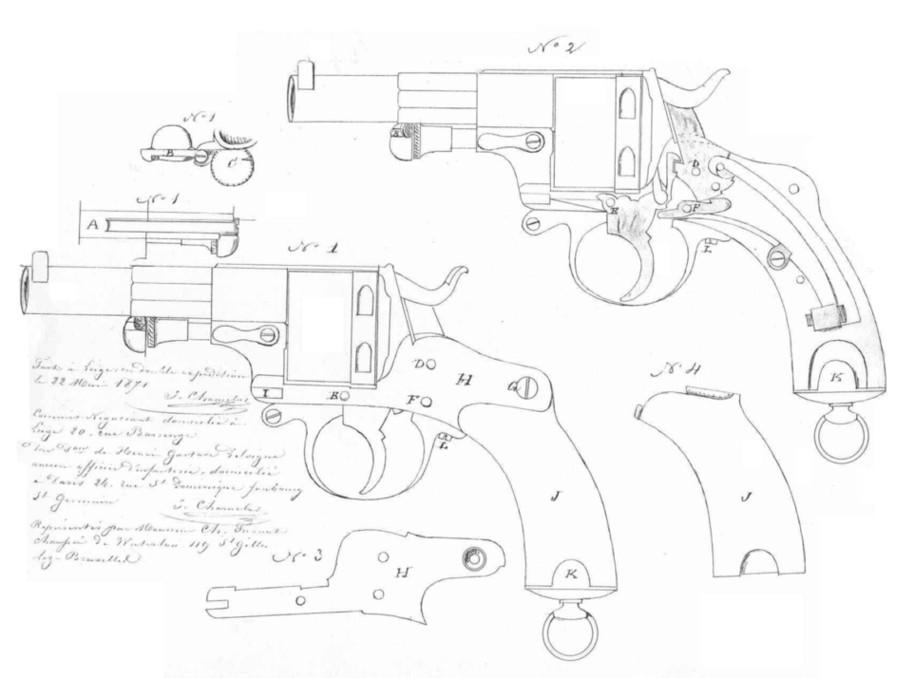
November 23, 1871 - Patent 29664
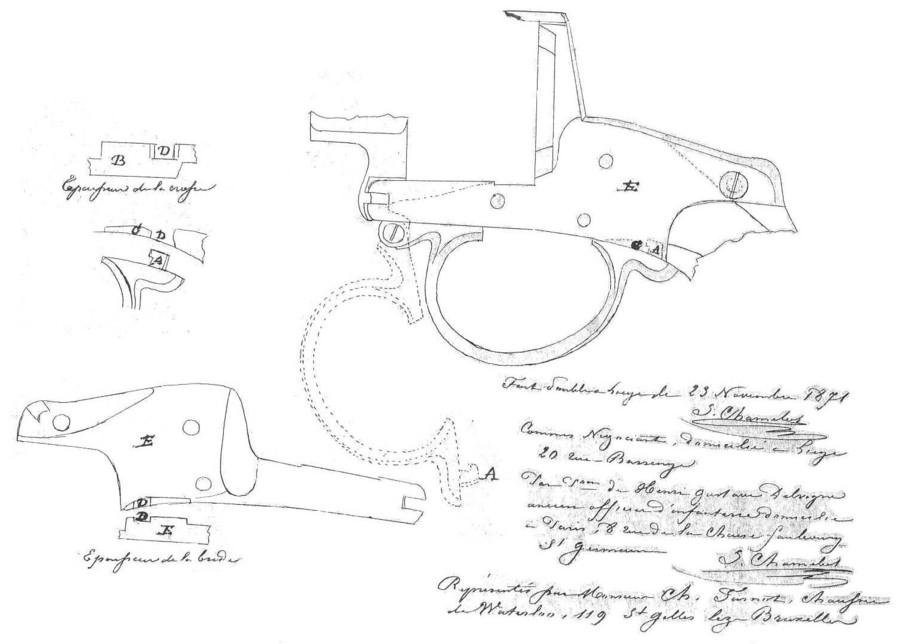
At the beginning of 1873 - Patent 31924
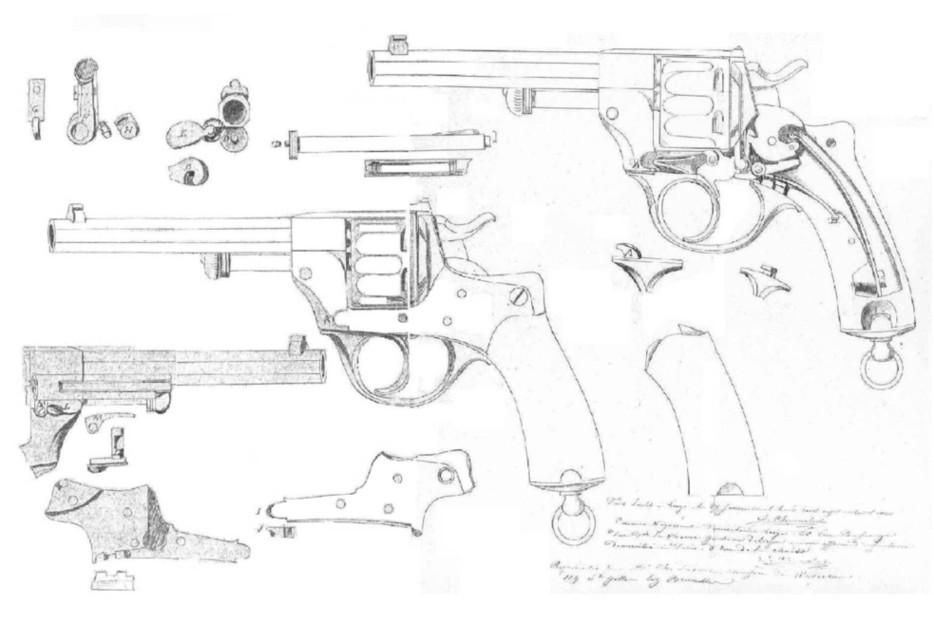
June 24, 1873 - Patent 32848
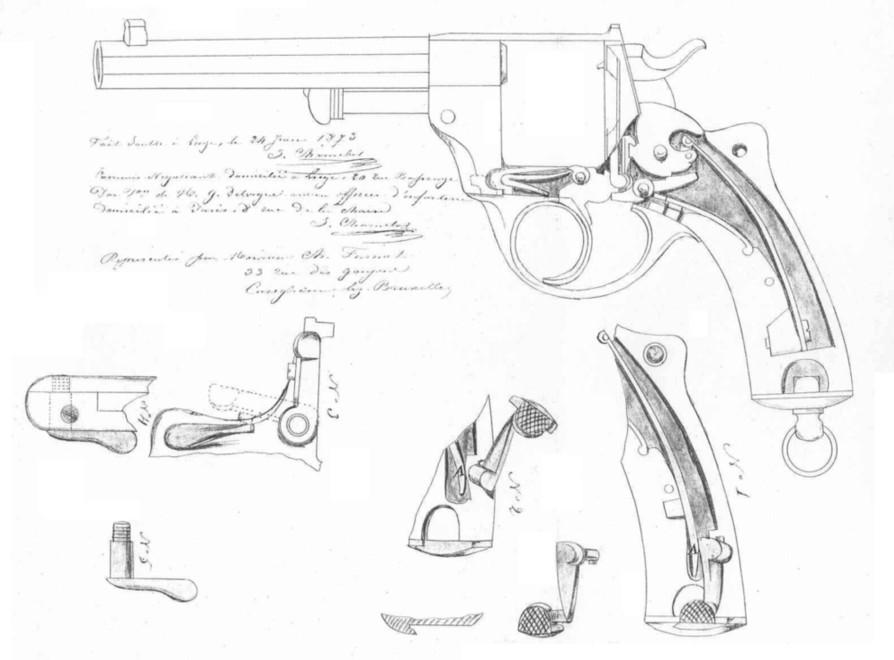
November 18, 1873 - Patent 33283
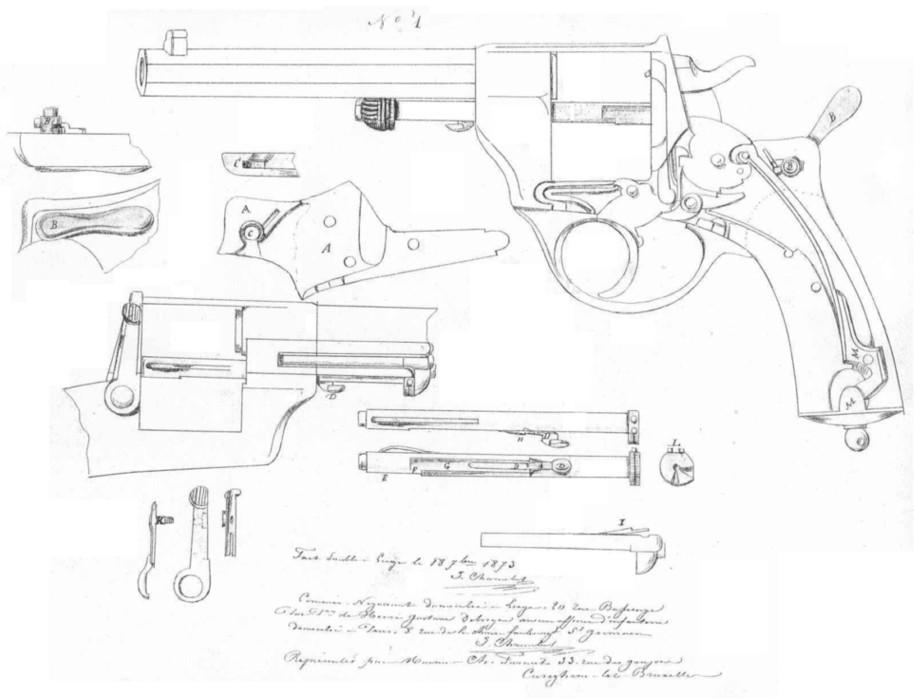
Chamelot Delvigne 1873
Une firme française fabrique le nécessaire pour recharger ce type de munition
Regardez ici : H & C Collection
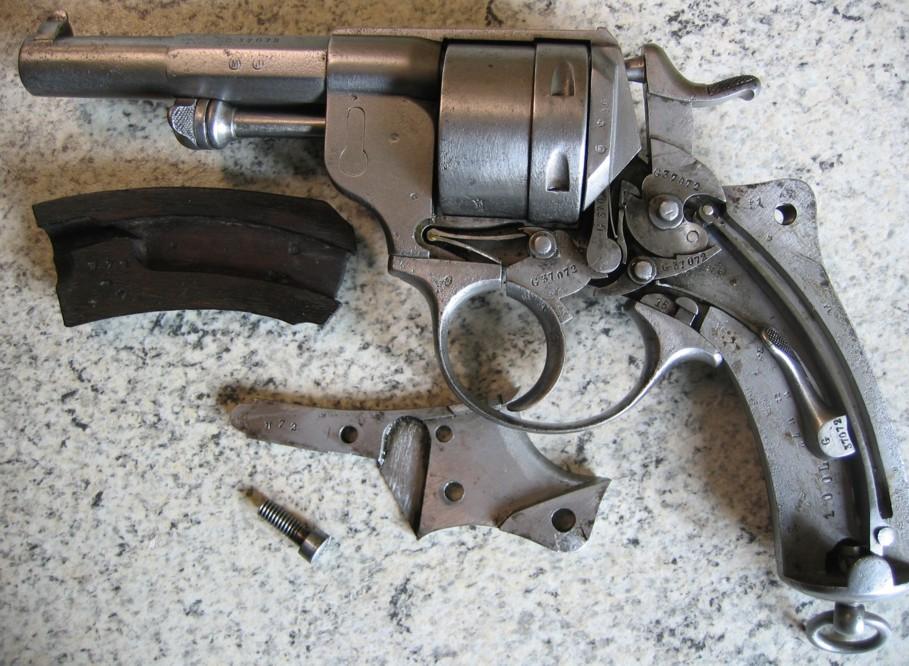
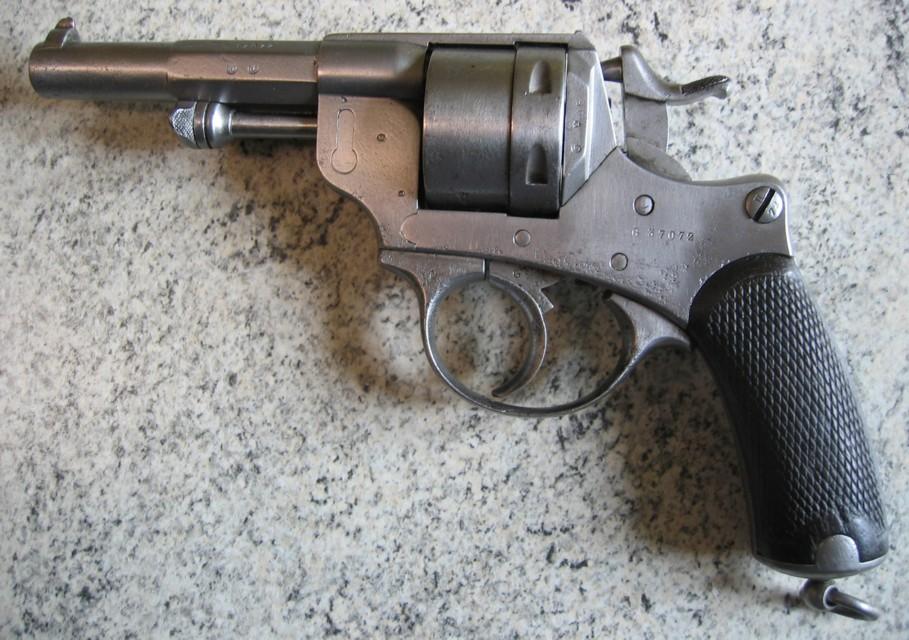
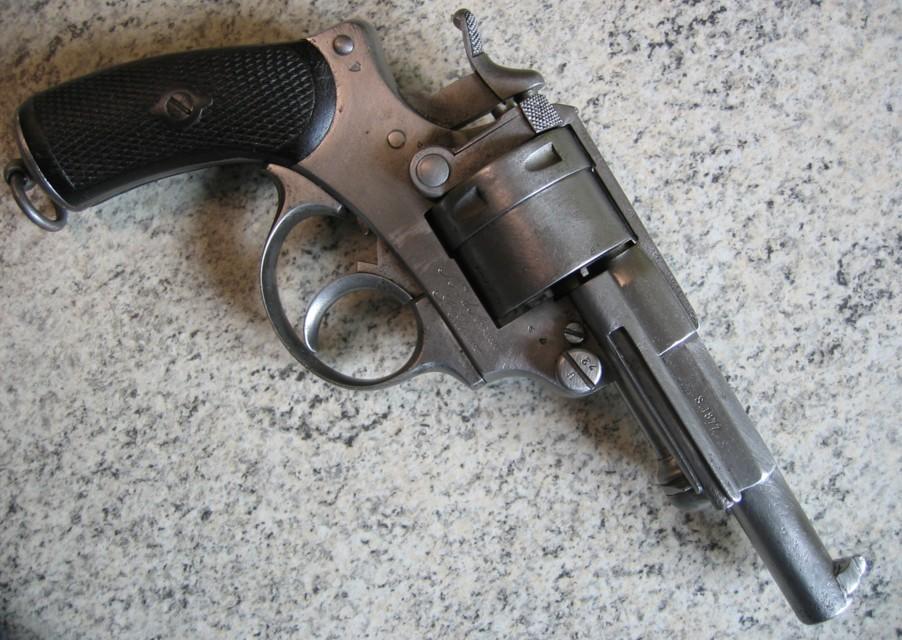
It is one 1873/74 or not - to be one 1873 - the barrel is not grooved /74 - bronzed black, one would need official markings of the official manufacturer MAS (St-Etienne) of lawful French!
Why isn't there to you not markings - to avoid the royalties, taxes and others - this weapon even seems not to be tested because it is about a model inspired of the 1873/1874 manufactured by an unspecified arms manufacturer with a “improvement” (Key of fast disassembling? or, if it is really a safety, probably intended for the German market which liked that).
It is obvious that Chamelot-Delvigne, manufactured by Pirlot Frères (see site) was used as a basis for this weapon, but also for the Italian model, 1872 Switzerland and quantity of civil weapons with or without alternatives, There is a French manufacturer “Gerest” of St-Etienne who manufactured this type of weapon with key of opening on the left, but it is not only - far from there!
HPH
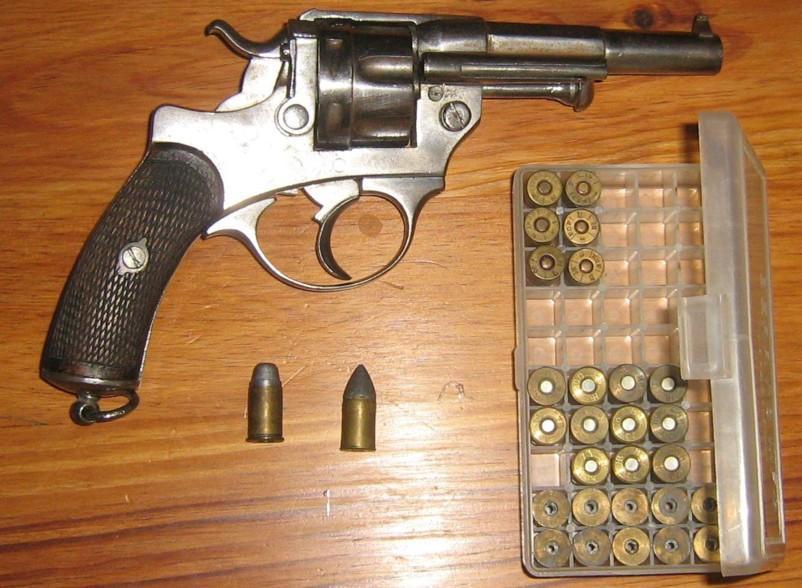
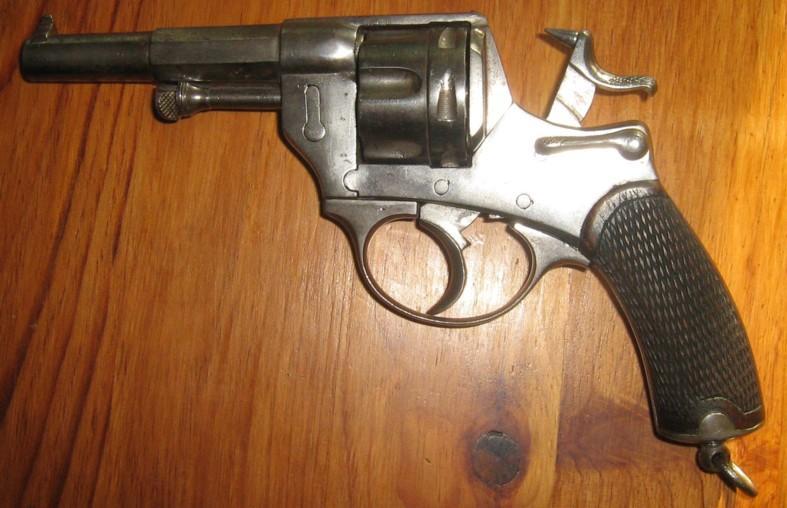
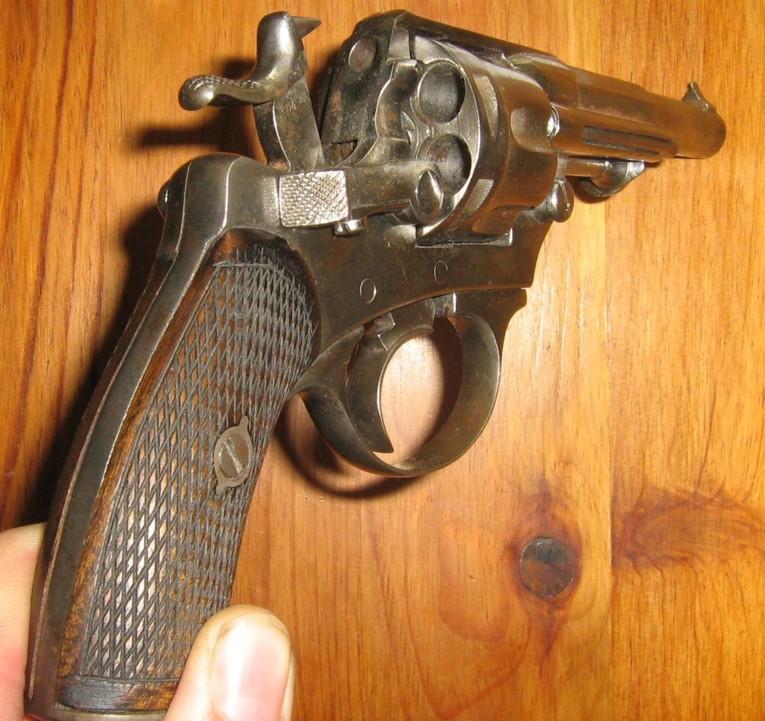
Chamelot Delvigne M1874
M1874 Chamelot-Delvigne Army Officer's Revolver, Manufacture d'Armes de Saint-Etienne, 11mm. The M1874 differs from the M1873 in that the cylinder is fluted and the revolver was somewhat lightened (?).
Approximately 36,000 of these revolvers were made.
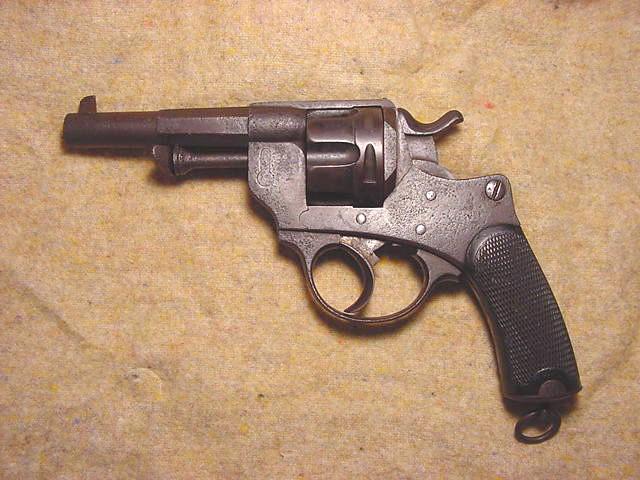
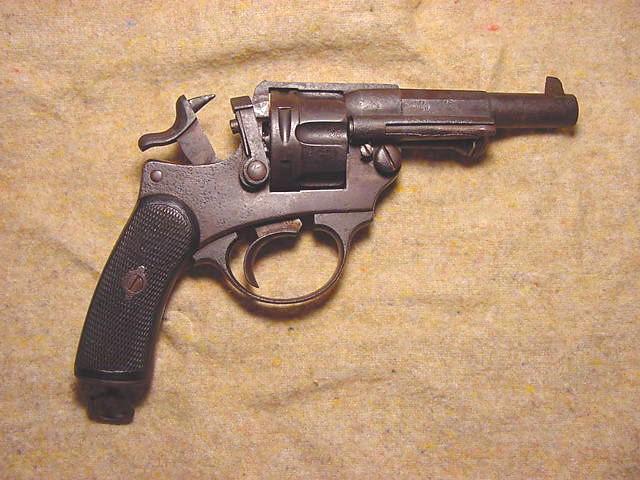
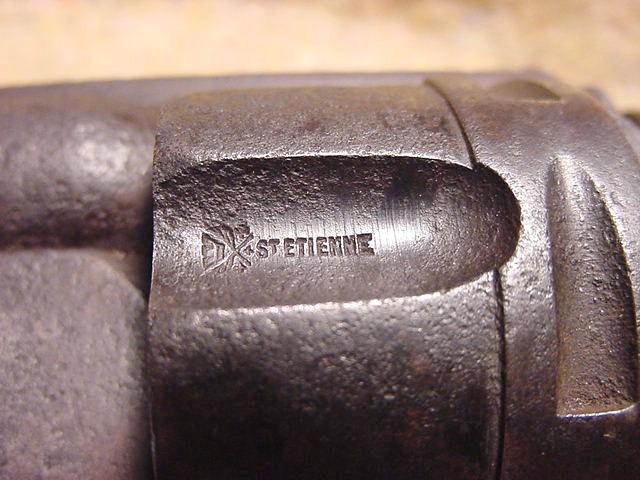
Chamelot Delvigne baby
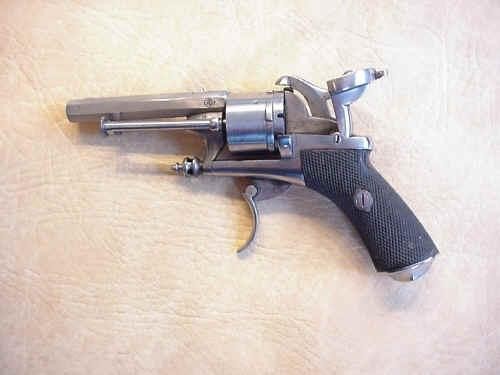
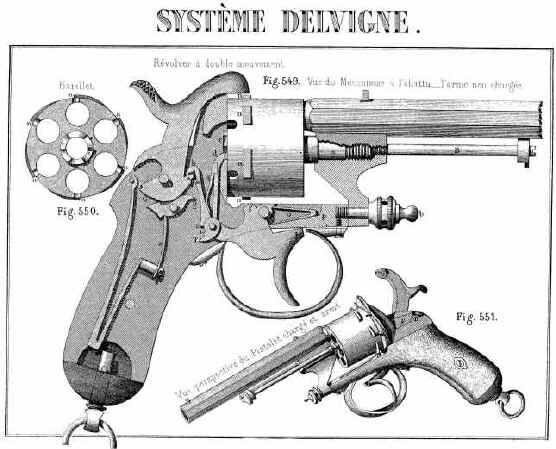
And a Chamelot Delvigne with percussion !
Many thanks to "MAGAZIN ROYAL" for the pictures.
Photos Littlegun